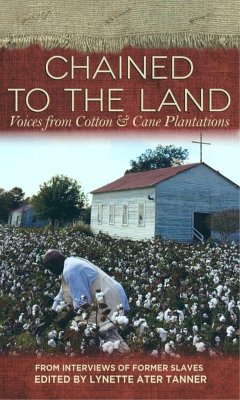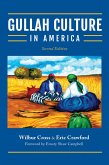During the 1930s, the Works Progress Administration sent workers to interview over 2,200 former slaves about their experiences during slavery and the time immediately after the Civil War. The interviews conducted with the former Louisiana slaves often showed a different life from the slaves in neighboring states.
Louisiana was unique among the slave-holding states because of French law and influence, as demonstrated in the standards set to govern slaves in Le Code Noir. Its history was also different from many Southern states because of the prevalence of large sugar cane as well as cotton plantations, which benefited from the frequent replenishment of rich river silt deposited by Mississippi River floods. At Frogmore Plantation, which is located in Louisiana across the Mississippi River from Natchez, co-owner Lynette Tanner has spent 16 years researching and interpreting the slave narratives in order to share these stories with visitors from around the globe. The plantation offers historical re-enactments, written by Tanner, that are performed by descendants of former Natchez District slaves.
In this collection, Tanner gathered interviews conducted with former slaves who lived in Louisiana at the time of the interviews as well as narratives with those who had been enslaved in Louisiana but had moved to a different state by the 1930s. Their recollections of food, housing, clothing, weddings, and funerals, as well as treatment and relationships echo memories of an era, like no other, for which America still faces repercussions today.
Lynette Tanner and her husband own Frogmore Plantation, a working cotton plantation and gin distillery, as well as Terre Noir, a second plantation in Concordia Parish. Tanner has received numerous awards for her preservation efforts and her promotion of Louisiana tourism. Tanner was the author and narrator of "The Delta: A Musical History" for the Smithsonian traveling exhibit which was on display in the La. Delta area.
Louisiana was unique among the slave-holding states because of French law and influence, as demonstrated in the standards set to govern slaves in Le Code Noir. Its history was also different from many Southern states because of the prevalence of large sugar cane as well as cotton plantations, which benefited from the frequent replenishment of rich river silt deposited by Mississippi River floods. At Frogmore Plantation, which is located in Louisiana across the Mississippi River from Natchez, co-owner Lynette Tanner has spent 16 years researching and interpreting the slave narratives in order to share these stories with visitors from around the globe. The plantation offers historical re-enactments, written by Tanner, that are performed by descendants of former Natchez District slaves.
In this collection, Tanner gathered interviews conducted with former slaves who lived in Louisiana at the time of the interviews as well as narratives with those who had been enslaved in Louisiana but had moved to a different state by the 1930s. Their recollections of food, housing, clothing, weddings, and funerals, as well as treatment and relationships echo memories of an era, like no other, for which America still faces repercussions today.
Lynette Tanner and her husband own Frogmore Plantation, a working cotton plantation and gin distillery, as well as Terre Noir, a second plantation in Concordia Parish. Tanner has received numerous awards for her preservation efforts and her promotion of Louisiana tourism. Tanner was the author and narrator of "The Delta: A Musical History" for the Smithsonian traveling exhibit which was on display in the La. Delta area.
Dieser Download kann aus rechtlichen Gründen nur mit Rechnungsadresse in A, D ausgeliefert werden.









